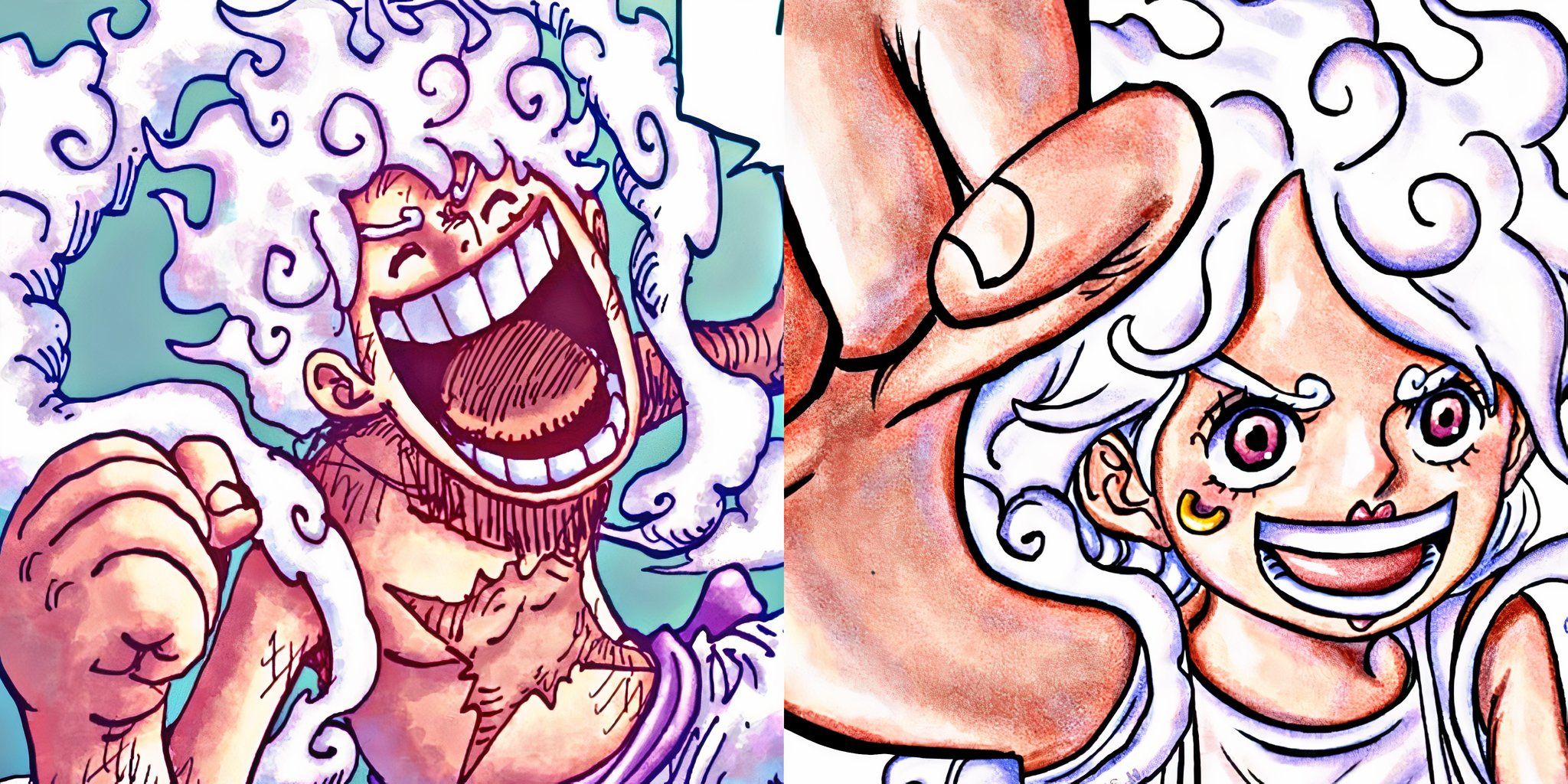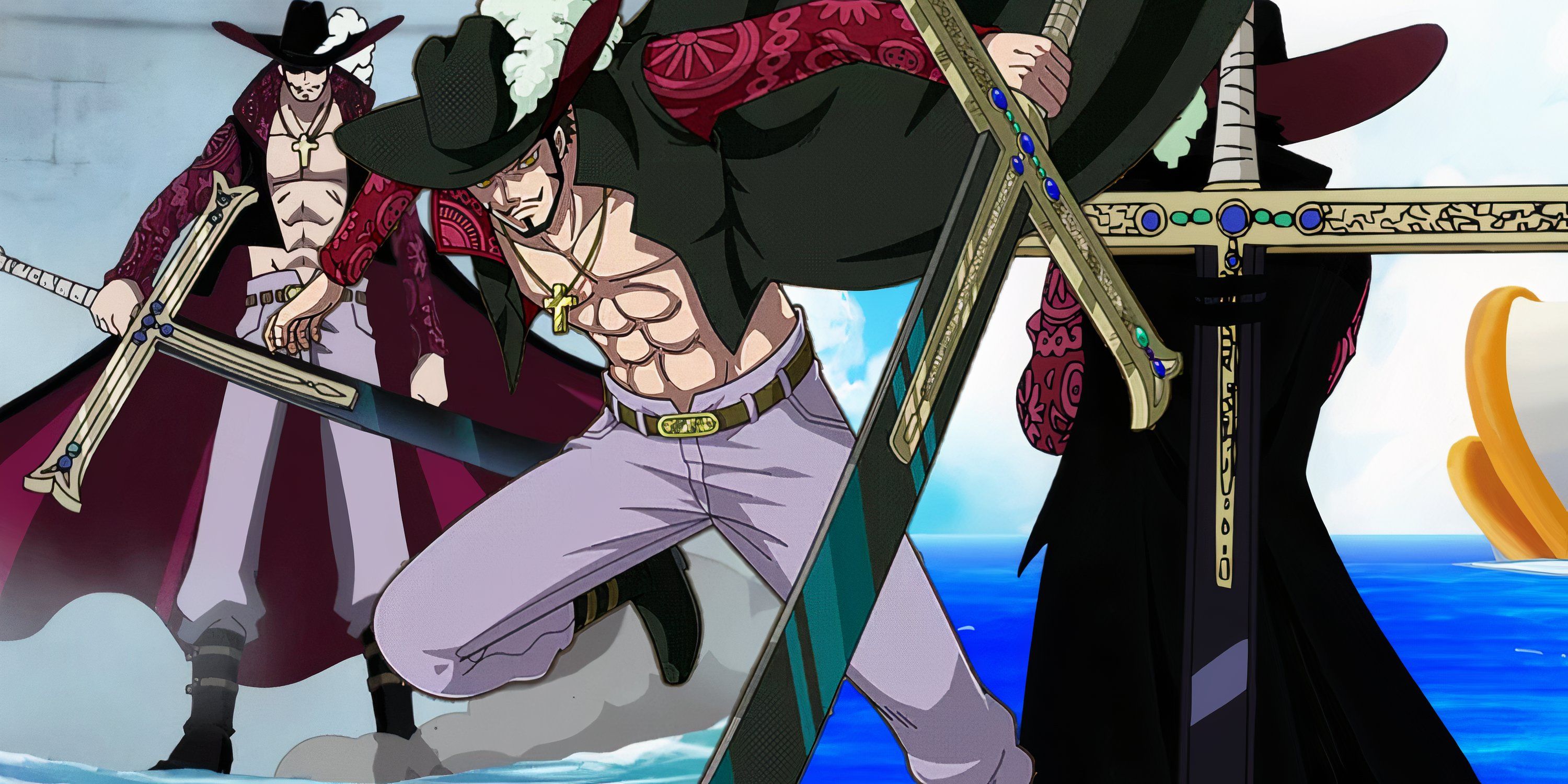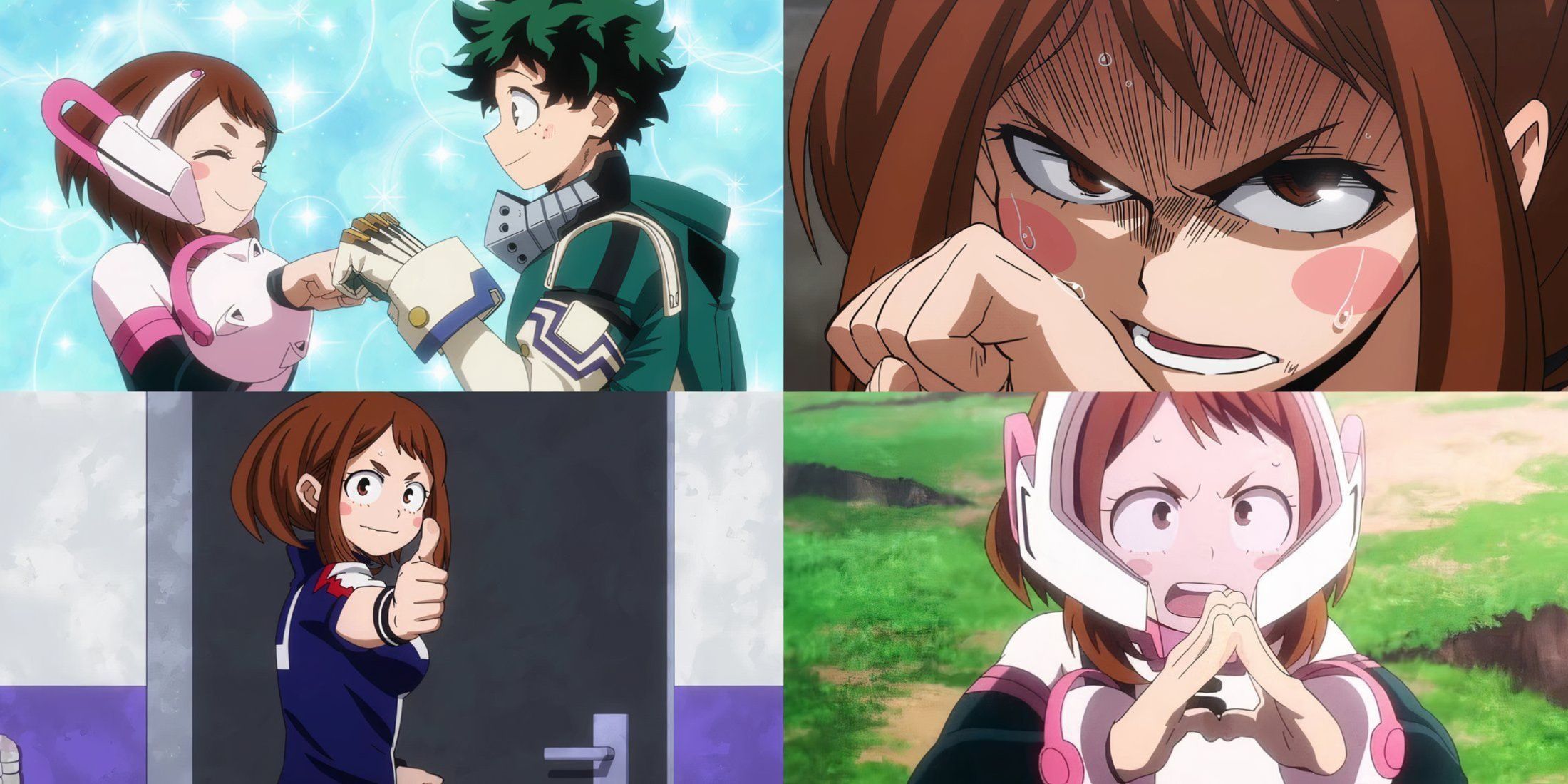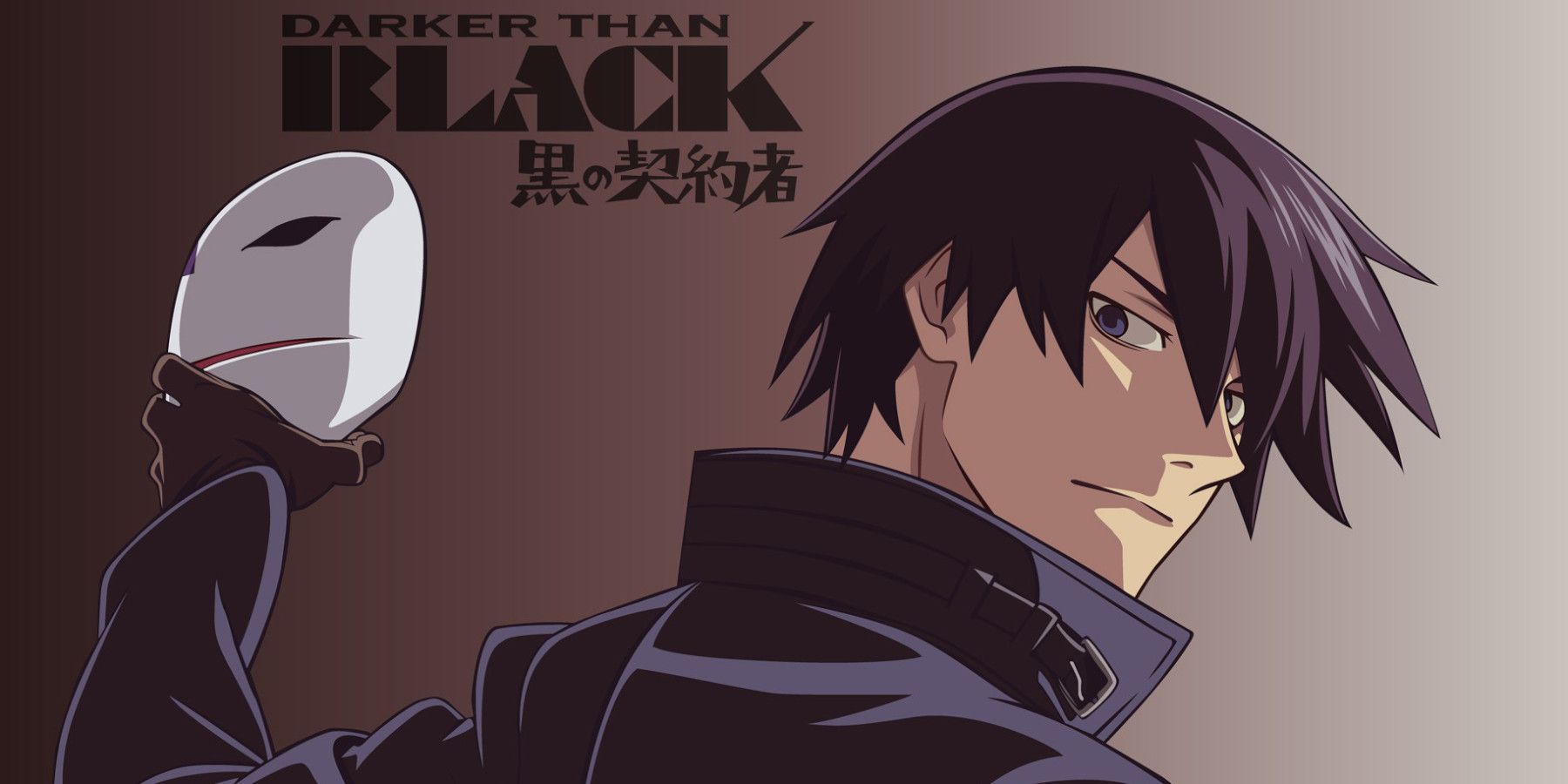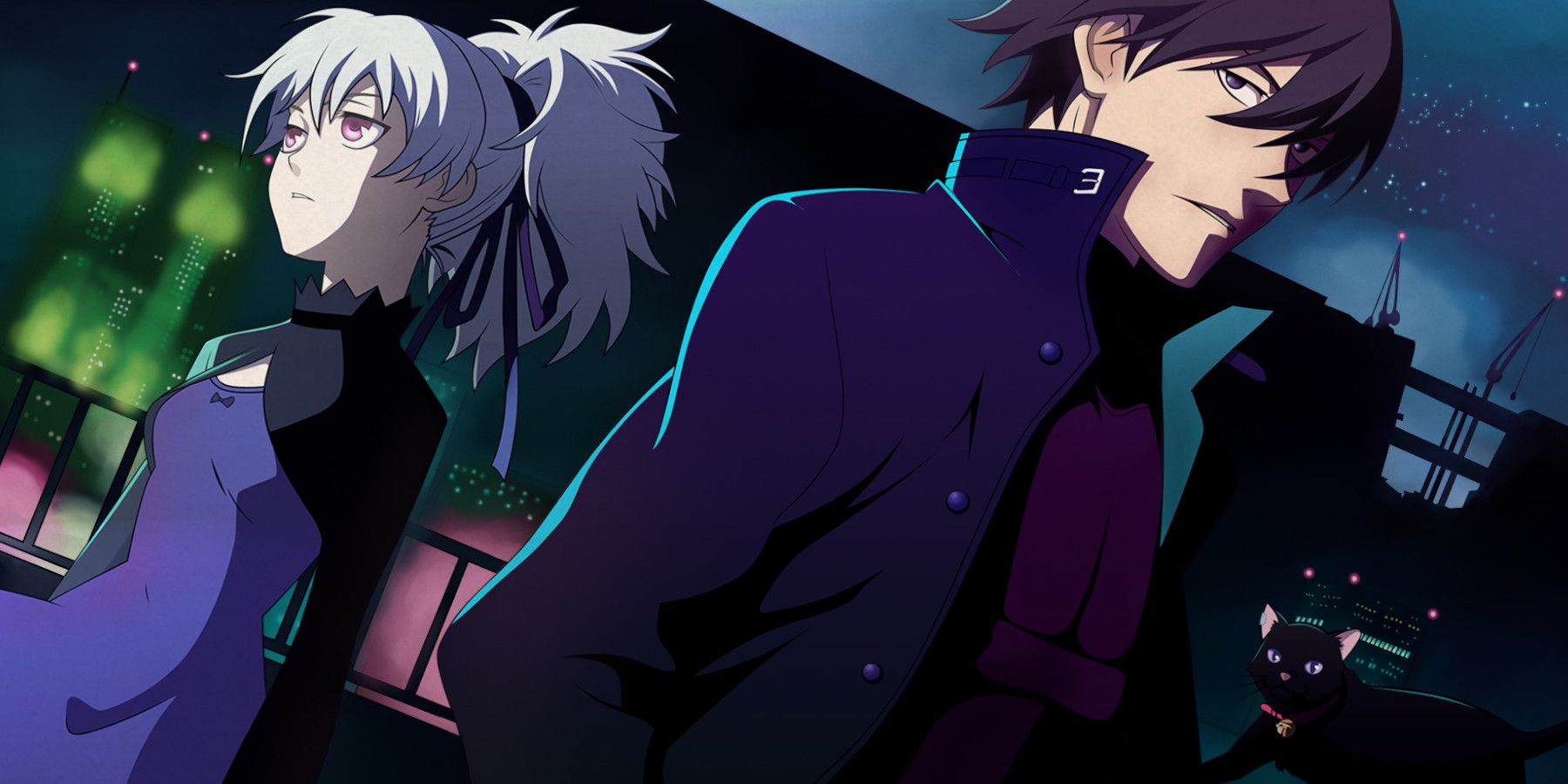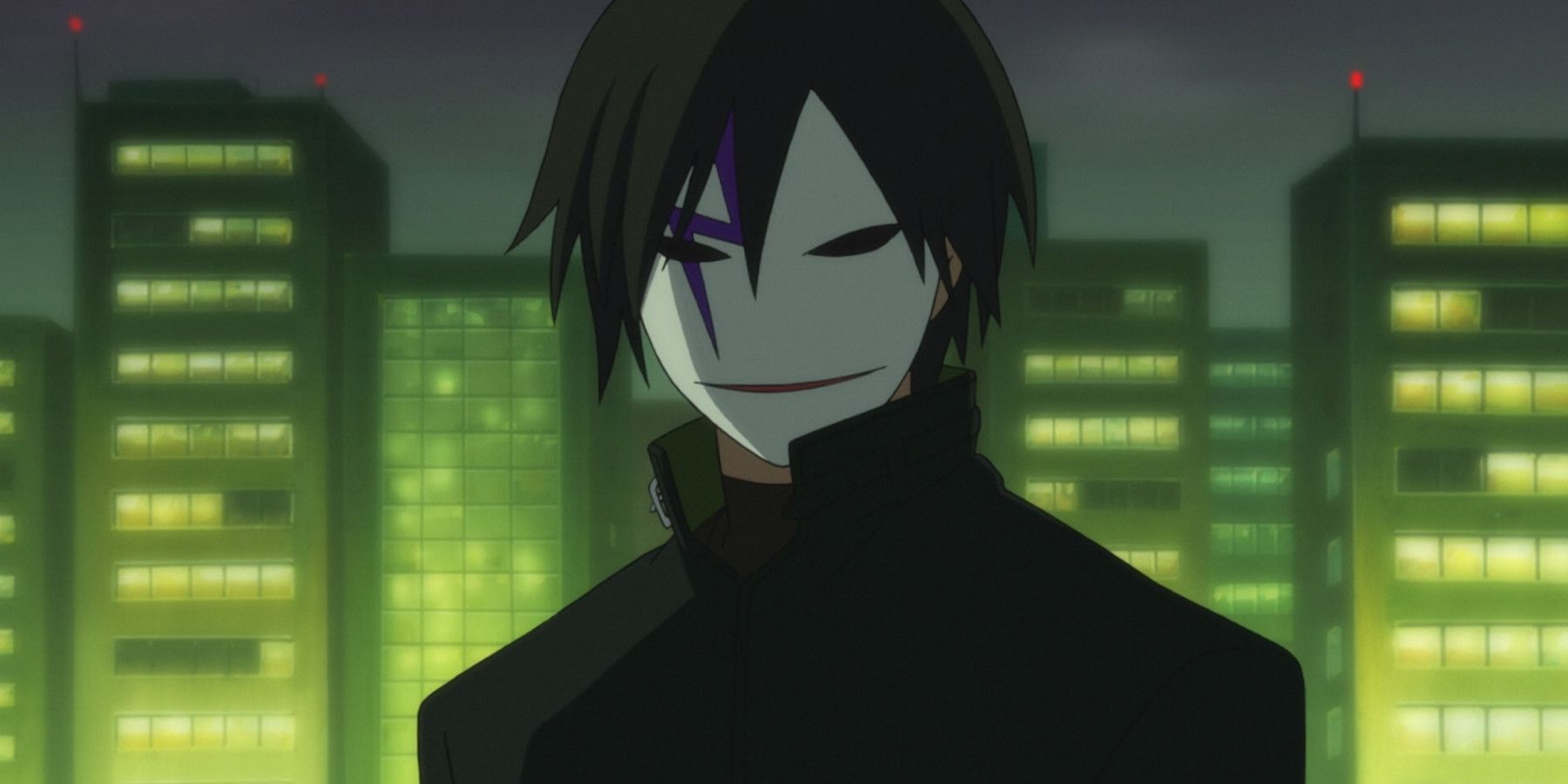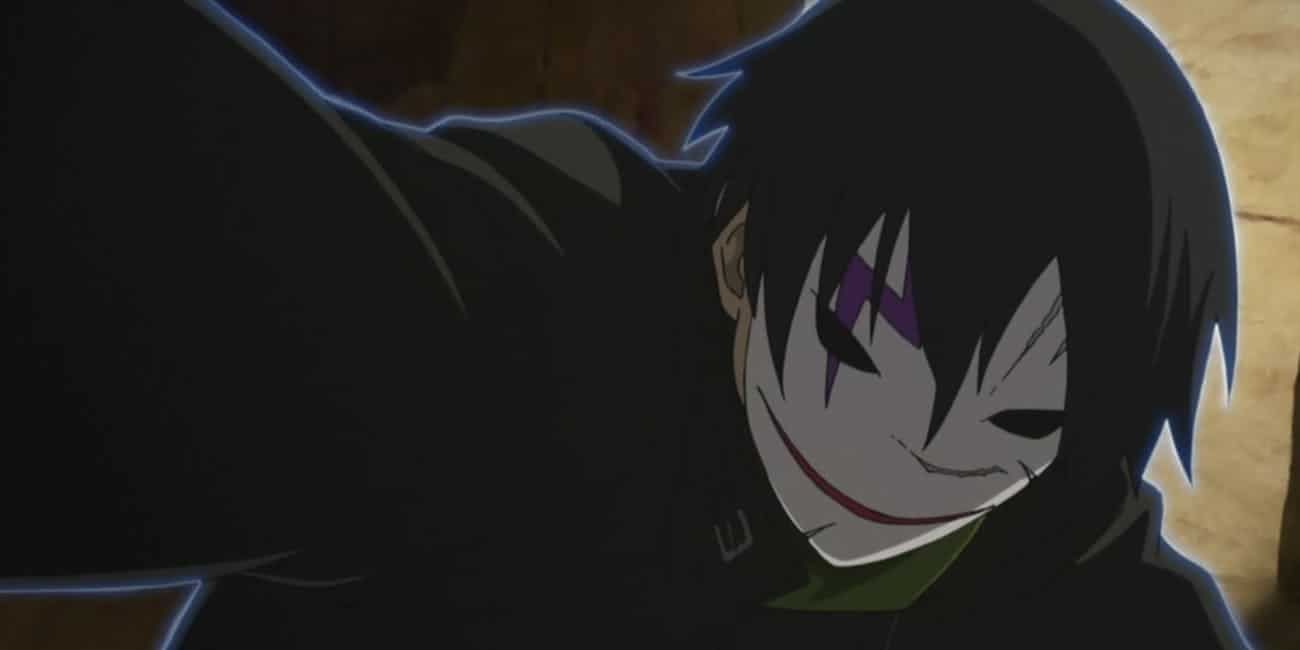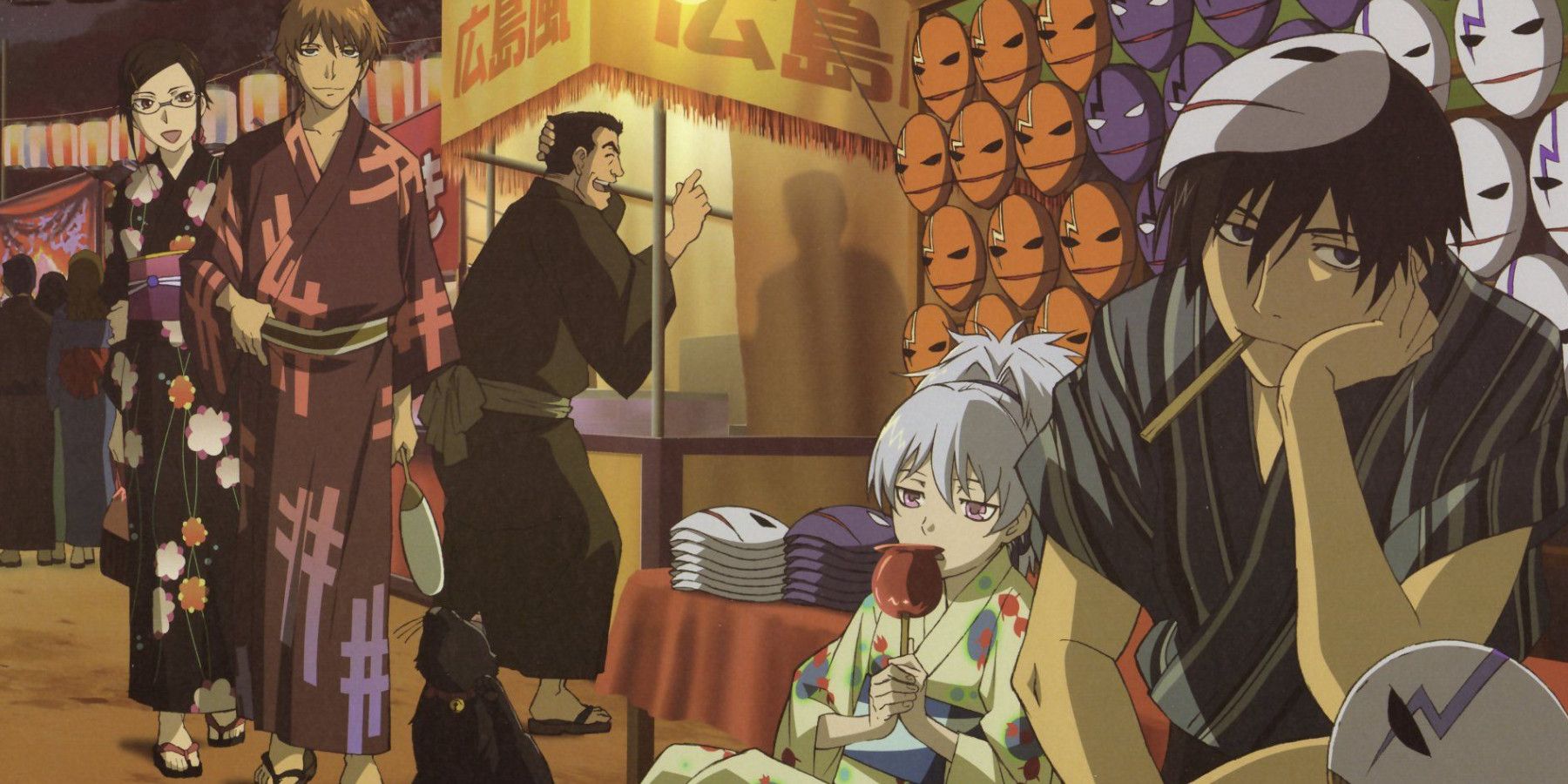Superpowers and anime go hand in hand, and few shows go harder with their superpowers than My Hero Academia, where the majority of the world population have powers or "quirks." However, long before Studio Bones hit big with My Hero, they made another anime all about superpowers, with noir aesthetics and a vigilante protagonist, called Darker Than Black.
Released in the spring of 2007, Darker Than Black tells the story of Hei, AKA BK201, a "contractor," which is another word for someone with superpowers. In this world, a mysterious phenomenon caused the sky to be replaced with a fake sky, where each star represents a person on earth who has become a contractor, and when a star falls, it means that one of them has died. While the series has never been seen as a huge mainstream success, it's one that repeatedly comes up when discussing anime from the 2000s, when Bones was cranking out classics. Darker Than Black can't go unmentioned along with the likes of Soul Eater, Sword of the Stranger, or Fullmetal Alchemist.
"The Contract - Is It Worth The Price?"
Honing in on the appeal of this show can be tricky, as the story doesn't lay its cards on the table in a very expedient manner, so to speak. The first two episodes cover everything from the aforementioned summary by introducing the main characters, explaining contractors, why they are feared, and setting up a status quo going forward.
This show is episodic, but - in the interest of taking its time - splits most of the adventures into two parts, something that is valuable for exploring the characters central to each story. Like Cowboy Bebop, Darker Than Black is a show heavily dedicated to its supporting cast and how they breathe life into the world.
Except, whereas Bebop's main characters were easily understood early on, the characters on Darker Than Black are harder to understand. Hei has a likable alter-ego as Li Shengshun, a Chinese exchange student, but it's very early on revealed to be an act. Yin, a "doll" or medium, is emotionless, and Huang, the handler, is just there to give orders and give Hei some guff now and again.
The truth is, Darker Than Black's story intentionally keeps its protagonists shrouded in mystery for a while at the beginning. It's more about the world and the people inhabiting it, slowly revealing more about Hei and his partners, their pasts and motives, and what their stake in their job is.
Even their exact job is mysterious, with their employer being referred to simply as "The Syndicate." Soon enough though, the motives are clear enough to give the story some sense of direction. Hei is trying to find out what happened to his sister in between working jobs for the Syndicate, meanwhile, a police detective named Misaki tries to hunt down Hei and figure out their whole deal.
But why should any of this be of concern and furthermore, what makes this show so great that comparison to My Hero was warranted in the first place? The answer lies in this show's supernatural elements, as well as a strong aesthetic that is so liminal and hard to put into words that it's puzzling. It's the same unexplained reason why people still gravitate towards this show even now, and the easiest explanation is that it's ridiculously cool.
The Black Reaper
A lot of media can be ascribed quality based on how it best "scratches an itch," the "itch" referring to some craving informed by nostalgia or an interest in a particular realm. When Darker Than Black's cool factor is discussed, it's often compared to the likes of Batman or Batman Beyond, episodic shows about cool masked men kicking ass.
Superheroes are cool because they have striking designs and interesting gimmicks, powers, or gadgets, and then audiences stay for interesting stories about them. Hei's first appearance in the anime immediately sets the mood for the show: a masked man with a grappling hook, knives, and the ability to electrocute his enemies.
Hei's presence and the recognition by the authorities inform the myth of the character, and that myth is what drives the series forward. Just so, the action is carried by Hei's adversaries, who are often super-powered just like him. Each new adventure introduces new contractors with wilder and wilder powers.
The Price of Power
The catch with contractors is that every time they use their power, they have to pay a price, or "Obeisance" depending on the translation. These obsessive-compulsive acts vary from simple things like laying one's victim's shoes upside-down to hefty costs like self-harm. For all the pain of payment, the powers can be pretty handy.
Hei's adversaries can do stuff like channel air into a weapon, possess other people's bodies, or control the weather. One of the best fights in the series sees a character slitting their wrist to fling blood opponents, snapping his finger to punch a hole in whatever the blood coats. The standard for creative powers is set early on and the show never fails to offer great choreographed action.
The story introduces contractors as unfeeling individuals that act according to logic and poses that for this very reason, they are recruited to work for governments and criminal groups. But what makes contractors interesting is the implication that the cold and illogical aspect of being a contractor is a stigma rather than a certainty.
Every contractor may act cold and rational, but the mask cracks, and even Hei acts more and more like a normal person as the series goes on. It's as if the series explores side characters so much in order to keep up this facade before tearing it down. Are contractors cold and rational because it's their nature, or are they that way partly because the role of a contractor has been normalized as such?
Why You Need To Revisit Darker Than Black
The less-beloved second season and the OVA contradict some of the above ideas, but regardless, it's never black and white. Looking at only the first season, the show does some very clever things across its 25 episodes and tells some great stories. Yoko Kanno's score makes it that much more enjoyable, blending jazz and rock beautifully.
Fans of My Hero Academia owe it to themselves to look back on this show, for it has some incredibly choreographed, superpower-based action that ranks among the best. That combined with a ludicrously cool aesthetic and an iconic lead, it's worth a binge... that is, if you can find it.
Darker Than Black is currently unavailable to stream in North America, nor has it been made available for purchase on Blu-ray. There is no legal way to watch the series, that said though, this is the anime community, after all, so those curious to watch will surely find ways.
